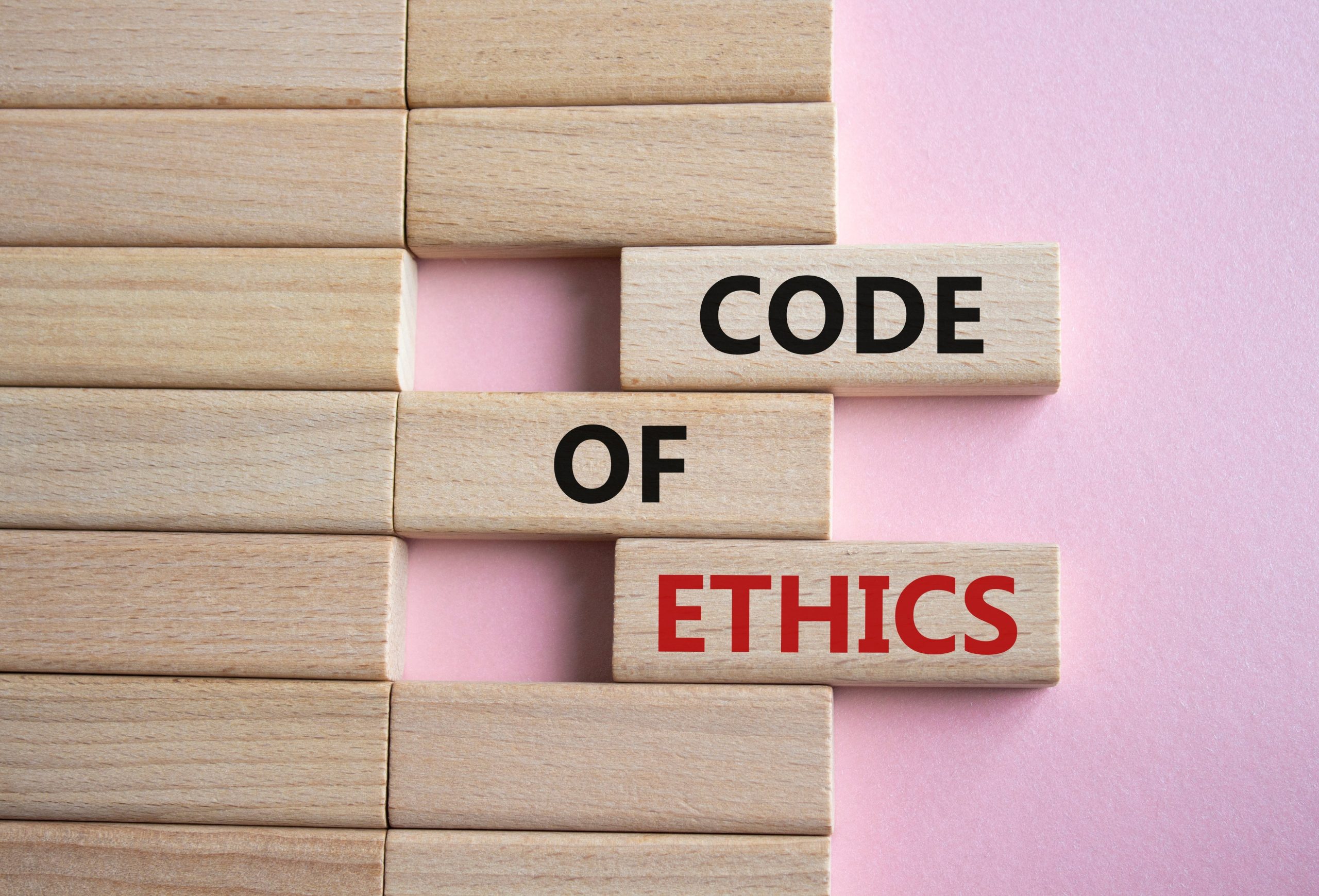| Getting your Trinity Audio player ready... |
When one attempts to make the transition, he should recall the famous dictum of the Beth Halevi: “Not all that is thought should be said, and not all that is said should be written, and not all that is written should be published, and not all that is published should be read.”
The Midrash elaborates upon this theme by declaring that man was created in the image of a monkey as well as in the image of God, and thus if man were to reject his godly image, he would be left with nothing but the image of a monkey…Gen. R. 23:6 and Matnot Kehunah
Judaism also unequivocally rejects the basic axiom of humanistic and much liberal thinking that man per se is the source of value. We read in Leviticus: “If anyone sins and rebels against the Lord and deals falsely with his neighbor . . (Lev. 5:21). The Tosefta [Shev. 3:5.] comments on the order of the phrases in this verse: “No man deals falsely with his neighbor unless he first rebels against God.” Since belief in God is the basis of all morality, the rejection of morality is ultimately based on the rejection of God.
But in the Jewish context, hidden from public view does not imply inferiority. For instance, in Genesis, when the angels visit Abraham, they ask him: “Where is Sarah, your wife?” Abraham answers: “In the tent” (Gen. 18:9), to which Rashi cites the comment of the rabbis:.. “Sarah is a private person.” Yet we find that Sarah achieved greater spiritual stature than Abraham. A few chapters later we read that God instructed Abraham: “All that Sarah tells you, hearken to her voice” (Gen. 21:12), to which Rashi comments: “This teaches us that Sarah was superior to Abraham in prophecy.” Although in their life together Abraham took the public role, this implies absolutely nothing about personal importance or spiritual greatness, for the Jewish hero is the hero of the inner stage, not the public stage.
The family is the basic unit of society, and if this is true of society at large, it is certainly true in Jewish life. Despite opinions to the contrary, the synagogue is not the focus of Judaism. The center of Jewish life has been, and will always be, the home. The collapse of traditional Judaism in America followed the collapse of the Jewish home, not that of the synagogue. The synagogue broke down in the mid-twentieth century because the traditional family had been secularized several decades earlier. When contemporary critics of Judaism claim that the synagogue is the center of Jewish life, it is because they have tasted only the most insipid and sterile forms of Jewish existence. The Jewish woman is the creator, molder, and guardian of the Jewish home.
A primary aspect of the mother’s role is to communicate the fundamentals of Jewish belief and practice to her children. She must teach her children to know God, love Him, fear Him, and worship Him, and she must bring the concepts of God and His service to life for them. The vibrancy of these concepts gives the Jewish home its unique power, and the subsequent religious life of every Jew is dependent on the success of this early maternal teaching. There are many facets to homemaking. Providing for the physical needs of the members of the household is only one part of a Jewish housewife’s work. While this responsibility is generally a necessary component of her job, her most important task is to provide the religious base for her children and the proper religious environment for all members of the household. In such a context, even the physical aspects of homemaking achieve a spiritual dimension.
The verse in Proverbs refers to a “Torah of hesed,” which prompts the Talmud to ask: “Is there a ‘Torah of hesed’ and a ‘Torah not of hesed’?” The Talmud answers that he who studies so that others may benefit by his learning is exemplary of the “Torah of hesed,” and he who studies for his own religious edification, with his own religious growth as the central focus of his concern, is exemplary of the “Torah not of hesed.” For the latter person, the Talmud has only scorn…Suk. 49b.
Marriage is important to the Jew on another level as well. The highest ideal to which a human being can aspire is to dedicate his life completely to the service of God. For a woman, this means the creation of a Jewish home. For a man, this generally means a complete and total involvement in the learning of Torah. This obligation, though, is coupled with a second obligation. A man must transmit his learning to his children and to his students.
This means that the essential role of women in building the home is similar to the role of Zebulun, whose reward is greater. The Talmud tells us elsewhere that “the enabler of an act is greater than the performer.” Enabling is a fundamental Jewish act and not a secondary level of performance.
Woman’s capacity for hesed has sustained the Jewish people throughout the generations. Jewish survival does not require the entire male populace to be totally involved in the study of Torah, but it. does require the dedication of all Jewish women to the task of building Jewish homes. Thus, while women are not required to pursue their ultimate task, women throughout the generations have willingly accepted the burdens of household and childrearing. This selfless act of hesed has ensured the survival of the Jewish people in each generation.
The Mishnah says: Ben Azzai said that a man must teach his daughter Torah…. R. Eliezer said that he who teaches his daughter Torah is considered as if he had taught her tiflut. The word tiflut has been interpreted in two ways. Most have understood it to mean “trivial and irrelevant things.”… An alternative interpretation of tiflut is “immorality.” Maimonides, who adopts the first interpretation, is most explicit. Certain areas of study are intrinsically esoteric and can be understood, even on a minimal level, by only a very limited group. Torah, Maimonides says, is not so. “It is accessible to all, young and old, man and woman, those with great minds and those with limited ones.” Torah may be accessible to all on their own level, but solid accomplishment on any level requires complete dedication of time and effort. Since, as Maimonides says, women are not generally ready to dedicate themselves completely to Torah study, their knowledge will necessarily be superficial. Given such superficial knowledge, a woman will not be able to appreciate the depth and scope of Jewish learning and will come to consider it irrelevant and trivial, i.e., tiflut. The alternative translation of tiflut as “immorality” reasons in a similar manner. Superficial knowledge can easily be misdirected. One of the major areas of Halakhah where one relies on a woman’s judgment is that of family purity. A woman who has only superficial knowledge in this area may make halakhic decisions that involve both her husband and herself in a violation of these very important laws. It is true that the rabbis approached the learning of Torah by women with great caution. Superficial knowledge is dangerous in all areas, independently of whether the possessor of the knowledge is male or female, and it is especially dangerous in so crucial and complex an area as Torah. Thus the Talmud asks: “Who is an evil, sly man?” Ulah answered “it is one who studies the Bible and the Mishnah, but has not learned from the wise men.” Rashi explains that he who has not learned sufficiently to acquire a deep and thorough understanding of his material and hence will not know how to apply his knowledge in practice. “R. Elazar said that such a person is an am ha-aretz . . . . R. Aha bar Yaakov said that he is a sorcerer [i.e., he practices sleight of hand].” Rashi explains the latter by saying that a person with superficial knowledge will utilize his knowledge to deceive people.
The above phrase, “the sages commanded a man not to teach his daughter,” was interpreted by R. Hayim Yosef David Azulay (d. 1806), commonly referred to as Hidah, as representing a practical warning rather than a legal prohibition. He was puzzled by the fact that the Talmud describes positively the vast scholarship of Beruriah, the wife of R. Meir and daughter of R. Hananiah ben Teradion. Had the command of the sages been a legal prohibition, then it would apply to all women equally, even to the most highly motivated and brilliant women. Hidah therefore concludes that the command of the sages is a warning against teaching women who are not sufficiently motivated. The sages recognized the fact that women were not involved in intellectual pursuits and cautioned against teaching them. This was not given the form of a legal prohibition and hence allowed motivated women to pursue their studies. Furthermore, it also allowed for a shift in attitude due to a change in the general orientation of women toward intellectual pursuits. A direct implication of Hidah’s view would be that in contemporary society, where women are regularly involved in serious academic pursuits, they may, nay should, seriously pursue their Torah studies. The Talmud tells us that during the reign of Hezekiah, the religious and scholarly level of the people was so high that “they searched from Dan to Beer-Sheba and did not find an ignoramus, from Gevath to Antiproth and could not find a young boy or girl, man or woman, who was not completely conversant with the detailed laws of ritual cleanliness.” At times when motivation is high, the Torah is accessible to all alike, male and female. The paradox is resolved in a different manner by the author of the Perishah (d. 1640). To teach Torah to women is forbidden. However, if they demonstrate their motivation by studying Torah on their own, and thereby show that they consider it to be a serious pursuit, the prohibition is removed. Thus, even though he seems to give the statement “The sages commanded” a legal interpretation, he allows for a different attitude when we are confronted by a situation which clearly demonstrates motivation. One does not impose Torah knowledge upon women, as one does upon men, for they are not required to study. But one may teach Torah to a woman who demonstrates the proper motivation. The view of Hidah and of the author of the Perishah is echoed in the responsa of R. Yehudah Aszod (d. 1866), who writes: “We do not find anywhere that women are forbidden to study.” In the volume of responsa, Maayan Ganim, the author not only permits motivated women to study the Torah but praises them and urges his audience to encourage them in their work.
A totally different direction has been taken by scholars of the twentieth century. Its effect has been to make Torah study mandatory for women. As has been seen, women are required to learn those areas of Torah necessary for the proper performance of their mitzvot. Rabbi Israel Meir ha-Cohen (d. 1933), author of Hafetz Hayim, in his work Likutei Halakhot to Sotah, comments on the talmudic statement regarding the learning of Torah by women: It would seem to me that this is only at those times of history when everyone lived in the place of his ancestors and the ancestral tradition was very strong for each individual and this motivated him to act in the manner of his forefathers. . . . However, nowadays, when the tradition of our fathers has become very weakened and we find people who do not live close to the parental environment and especially that there are those who have been given a secular education, certainly it is required to teach them the entire Bible, the ethical writings of our sages, etc., so that the principles of our holy faith will be strong for them. Otherwise, Heaven forbid, they may deviate entirely from the path of God, and violate all the precepts of the Torah. The author of Hafetz Hayim extends the requirement of teaching a woman those mitzvot which are applicable to her from practical instruction to include all that is necessary for proper motivation and performance. This, he says, varies from society to society. In those societies where the environment is sufficiently strong not to require education for proper motivation, no education is required, although it is permitted. However, in contemporary society, where education is a prerequisite for proper motivation, such education is not only permitted but is also required. Very few people with a college education in Western culture and a grade-school education in Judaism can be properly observant. For a college-educated woman, a college-level education in Judaism is not optional, it is absolutely required. The words of the author of Hafetz Hayim are echoed by Rabbi Zalman Sorotzkin (d. 1966) in his work Moznaim laMishpat. In an ingenious tour de force, he says that nowadays one who does not teach his daughter Torah leaves her prey to street culture and eo ipso teaches her its immorality. It is not the teaching of Torah that teaches tiflut, immorality, but rather the lack of such teaching.
Maimonides paraphrases the Talmud: The disqualification of relatives by the Torah is not because they are presumed to love one another, for they cannot testify in favor of or against their relatives. It is simply a decree of the Torah. Therefore a friend or enemy is fit for testimony, even though they are disqualified to judge the case. The Torah has only declared regarding relatives.
A similar technical disqualification applies to a variety of other potential witnesses. Some are disqualified for lack of credibility, others on purely technical grounds. A king is disqualified from being a witness.’ David or Solomon, kings of Israel, could not testify. The Messiah will be disqualified from being a witness. The attitude of a court to a witness and the respect due a king are inconsistent. Thus a king was not only relieved of the duty to appear in court as a witness, but was actually disqualified. A woman, too, is disqualified from testifying. However, Tosafot point out that this is completely technical and does not stem from a lack of credibility… There is no equation between the disqualification of women and the disqualification of slaves as witnesses. It is not a matter of credibility, but rather technical disqualification, as in the manner of relatives.
The technical disqualification of women in Jewish law may also be due to a feeling that it would be improper to subject women to the indignity of intense cross-examination in court. Hence, the reasons for the disqualification of women and kings would be similar.
None of this is true in Jewish law, where a married woman may contract and own property. A husband was forbidden to restrict his wife’s freedom of movement “for she is not in jail, where she may not come and go.” Not only was beating a wife frowned upon and forbidden, but it was a valid ground for divorce… Rama to Even ha-Ezer 154:3, Sefer Agudah recommends chopping off the hands of wife-beaters.
Thus, it is no surprise that in Israel, where rabbinic courts are given recognition by the state, very few men manage to avoid granting divorces to their wives when ordered to do so. In cases where they are able to avoid compliance with the court’s order, it is because the State of Israel does not allow the full measure of coercion condoned by rabbinic courts. Rabbinic courts in Israel can order a man to be placed in jail for refusing to comply with their order, but Jewish law also allows corporal punishment to be enforced upon a man until he agrees to divorce his wife.
Jewish tradition respects female sexuality and grants the rights of sexual fulfillment more to the woman than to the, man, Judaism has always condemned celibacy and has none of the negative attitudes toward male-female relations so prevalent in Christian thought. Judaism’s positive view of sexuality is reflected throughout the extensive body of Jewish literature on the topic, and one would suppose that only the most obtuse or biased person would fail to realize this.
One of the most beautiful introductions to the Jewish attitude on marital relations is contained in the Iggeret ha-Kodesh, or “Holy Letters,” ascribed to Nahmanides: Marital relations are holy, pure, and clean, when done in the correct manner, at the correct time, and with the correct attitude, and whoever says that they are something disgraceful and loathsome is gravely mistaken . . . and those who were influenced by Aristotle are mistaken. For, underlying the philosophy of that Greek there is an element of heresy that is subtle and not easily felt. Had he believed in creation he could not have said this; for all believers in the Torah believe that the Almighty created all according to His great wisdom and did not create anything which was intrinsically disgraceful. For, if we say that marital relations are intrinsically evil and disgraceful, then so are the private parts of the human body, and if so, why did God create them? But God is pure of spirit and nothing comes from Him which is intrinsically evil, and He created man and woman and created all their organs. The matter is thus. For, just as the hands of a human being can write a Torah and can create the highest sanctity and at that time they are high and praiseworthy, and when they steal and murder they are evil and loathsome, so too is this area of life.
It seems clear that all authorities forbid nonmarital intercourse; the only dispute revolves about the source. The Talmud forbids a man from being in a closed or isolated place with any woman other than his wife, and hence it is clear that relations with a woman other than one’s wife are forbidden.
Men and women are segregated during prayer for a variety of reasons, one of which is sexual distraction. The presence of women provides the male with an alternative focus of attention, and also prevents him from attaining the feeling of solitude and intense concentration necessary for the deeper aspects of prayer. It is easy for a man to be oblivious to the people pie around him if they are men. It is more difficult, if not impossible, if they are women. The ability of women to catch a man’s eye is known to every man, and oftentimes forgotten by women. The Jewish religious act requires inner drive and the inner experience. Both of these require the ability to divorce oneself from the people around him. The separation of the sexes was introduced as an aid toward this goal. The presence of women, of necessity, provides an alternative focus of concentration. In addition, men feel more self-conscious in the presence of women than in the presence of men alone. Just as external distractions from prayer must be eliminated, so must anything that increases self-consciousness. It is for this reason that R. Meir of Rothenburg says that women cannot receive aliyot but slaves can, even though neither group is obligated in public Torah reading. Women distract, slaves don’t!, Kvod tzibbur reflects a sexual reality, not a legal difference between men and women.
An associated issue, although technically totally different, is the permissibility of women dancing in the synagogue with Torah scrolls during hakafot on Simchat Torah. This practice has been opposed by all contemporary rabbinic authorities. My revered teacher, Rabbi Joseph B. Soloveitchik, told me that he opposed this practice when questioned by synagogues in Brookline, Massachusetts, and New York City. The basis for this ruling, he told me, is the Talmud in Berakhot, which says that just as there is an etiquette that regulates one’s behavior when visiting someone else’s home, so too there is a tradition that regulates behavior in the synagogue.
The Rama (d. 1572) and all subsequent authorities, following the opinion of R. Meir of Rothenburg, have decided that women may not wear tefillin. I know of no authority subsequent to the Rama who permits women to put on tefillin. In conclusion, women are not permitted under any circumstances to wear tefillin. In view of the fact that the Rama, the authoritative codifier of law for Ashkenazic Jewry, and virtually all other authorities, forbid the wearing of tefillin by women, there is very little basis for a contemporary to permit the wearing of tefillin by women.
By his own admission, Maimonides was an ardent scholar of comparative religions. However, in Iggeret Taiman he says: The difference between our religion and those that are similar to it is the difference between a live man who thinks and a statue artfully created from marble, wood, silver, or gold in the form of a man. The fool, in the knowledge of God and in God’s work, when he sees a statue similar to a man in outer form, structure, size, and color, will think that the two are identical because he sees that superficially one is like the other. However, the wise man, who understands the inner workings of things, knows that on the inside of the statue there is no handiwork and that the inside working of the human being is truly wondrous. … so the foolish and ignorant person, when he approaches our Torah and the words of the prophets, and when he compares our Torah to foreign religions, will think there is a comparison between them. He will find in the Torah of God things which are forbidden and things which are permitted. In both he will find rituals, and both forbid, promise reward, and threaten punishment. However, had he understood the hidden things of both, he would find that the divinely given Torah has great wisdom in its workings . . . and that those similar cultures lack real content, but have only superficial form and should seem as ridiculous as does a monkey who tries to imitate a human being.
The secular life is an empty one for both men and women. Men try to fill the void in their lives by a frenetic pursuit of false goals, but none of these, when achieved, has the capacity to satisfy. Thus life remains essentially empty and meaningless. In his daily prayer, a Jew recites: “We pray that He will open up our hearts to His Torah and that He will place in our hearts His love and His fear so that we may perform His will and serve Him with a complete heart, so that we shall not strive for an empty existence, nor give birth to confusion.” A life devoid of the fear and love of God is an empty, confused life.
But Eve’s role as “mother of all mankind” need not be psychologically devastating and ultimately meaningless. Money and public acclaim need not be the only goals in life. The Jewish woman’s primary goal should be her own religious wellbeing and the religious well-being of her family. But more essentially, no Jew is allowed to live by and for himself. Every Jew is required to live as part of a community.
Note to Readers: The insights and wisdom in these books are too valuable not to be shared widely. There’s an urgent need for them to be made into audiobooks, expanding their reach and accessibility. If you have the influence or means to make this happen, I encourage you to lend your support. Let’s work together to bring these important words to a broader audience.













